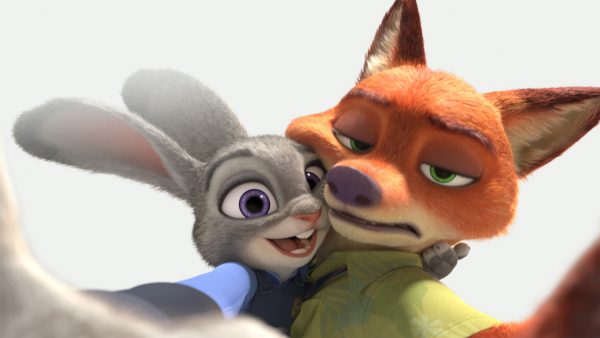In the movie, Zootopia, Nick Wilde is found walking into Jumbeaux’s Cafe, a elephant-primary 1980’s style ice cream parlor. The result of the confrontation between Judy Hopps and Nick Wilde within this parlor was Judy purchasing Nick a “Jumbo-Pop” for what she then thought was his son “who had always dreamed of growing up to be an elephant”. Although this confrontation in and of itself is no less than ridiculous, one detail seems to cause question for the ecosystem of Zootopia as a whole. This detail being, the price of the “Jumbo-Pop”. The price of $15 for an ice cream seems to be very offsetting, but when taking into consideration the sheer size of the treat, $15 seems justifiable. But still, this makes one wonder, if elephant sized animals need to pay more for elephant sized food, are these species’ just at a disadvantage financially automatically? Zootopia is a city of many different types of animals found in many different sizes, so how do they all co-exist with the same currency? When an elephant needs to pay $15 for a “Jumbo-Pop” that is just as proportional to him as a $2 “Pawpsicle” is to a gerbil, how do elephants remain in the same financial circles?
The theory is: How much money is made in Zootopia is primarily decided by the size of a work place you are working in. The thought of one getting paid for not what they do, but the size of the place they do it may sound ridiculous, but this may be the only logical explanation. Gerbils may work in a building that elephants are the size of, and get paid proportionally to the size of that space, while elephants work in a place more well adjusted for their needs. This would give the gerbil sized animals less money, but proportionally, with the cost of living taken into consideration, just about equal to what an elephant would make in the same job. Since the gerbil obviously pays less for his car, his living, and his food, not making as much as an elephant would seem fair. Since an elephant would need to spend far more on a car, a living space, and food, the elephant making substantially more than a gerbil seems to be fair as well. This may have also played part into why so many people were bewildered to see Judy Hopps become a police officer. As a police officer, Judy worked alongside animals far larger than her, which means she most definitely got paid as if she were a large animal as well.


